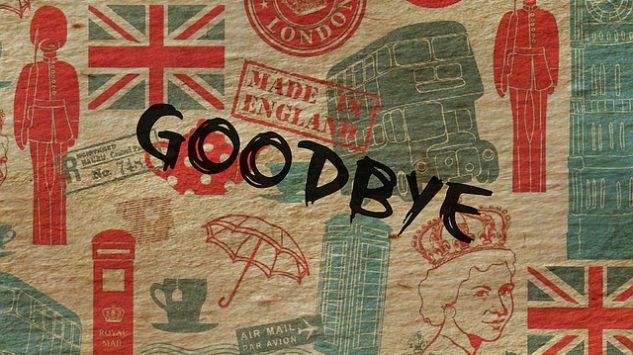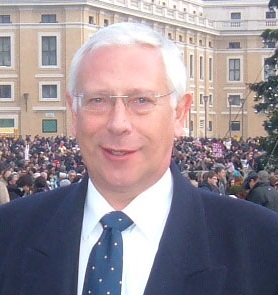Issue Briefs

Brexit Mess Turns into Quagmire
September 5, 2019
by Graham Bardgett
High ranking veteran Conservative MPs, including grandson of Winston Churchill, Sir Nicholas Soames, and Father of the House of Commons Kenneth Clarke, helped stop UK Prime Minister Boris Johnson pushing forward with a disastrous “Do or Die No Deal Brexit” on 31 October.
And the Prime Minister’s own brother Jo Johnson resigned as a Government Minister and MP saying he was torn between family loyalty and the national interest.
Johnson’s next move
But even with that it was feared Boris Johnson could still ignore Parliament and call an election to take place after the 31 October Brexit date – which would mean the UK crashing out of the EU anyway.
It seems unlikely that the Prime Minister would obey a new Bill due to get Royal Assent which seeks an extension to the deadlines provided by Article 50 of the Treaty of the European Union.
MPs across the House and in his own Party just do not seem to trust him.
The rush to the cliff edge No Deal Brexit with the UK crashing out of the EU on 31 October appears now to have been halted.
Stopping No Deal Brexit
The race to get the emergency legislation through came with the scheduled shutting down of Parliament by the Prime Minister for five weeks, amid fears MPs would be denied any chance of stopping a No Deal Brexit catastrophe to industry, agriculture, and the health service.
Boris Johnson accused a group of 21 Conservative MPs of being rebels and had them immediately sacked from the Party. Many in heartfelt speeches said they had put Britain and the people of the country before their own careers and that they would stand again as Independent MPs or leave Parliament altogether.
In what was said to be outrageous behaviour by the Leader of the House Jacob Rees-Mogg, he lay slouched across the front bench of the House of Commons in apparent total and utter contempt for Parliament. The same man had been one of the Conservative MPs who went to Balmoral Castle in Scotland to convey to the Queen the Prime Minister’s request to shut down Parliament.
Legal challenges to Johnson’s moves
In legal moves, a Court case was taking place in London with Sir John Major, a former Conservative Prime Minister, arguing that it was unlawful to shut down parliament. Similar legal moves were taking place in Scotland and Belfast aimed at reaching the Supreme Court for a decision.
Sir Nicholas Soames and Kenneth Clarke, both former Senior Government Minister, made impassioned pleas attacking Boris Johnson. Even the Scottish Nationalist Westminster Leader Ian Blackford accused the Prime Minister of being a “tin pot dictator”, and Alistair Burt, a former Foreign and Commonwealth Office Minister, was among those high critical of Boris Johnson.
In response to Government defeats, the Prime Minister, in an apparent petulant Public School bully boy tactic, said it was time for the people to decide in a General Election. But when it came to that being voted on, the Government lost.
Labour hoping to win the next election
Labour Party Leader Jeremy Corbyn said he looked forward to winning a General Election – but only after any chance of a 31 October No Deal Brexit was absolutely stopped. There must be no chance of the Prime Minister getting Brexit through with a No Deal, he said. That was the first priority he said.
Many MPs, Conservatives and Labour, joined with the Liberal Democrats to warn of the economic catastrophe that was looming if Britain went ahead with a No Deal Brexit. Industry, agriculture, the Health Service, and people’s jobs were all at risk, they said.
However, many Conservative MPs argued in favour of the Prime Minister to say the British public was fed up with all the Brexit debates, and that people just wanted an end to it all. The way it looks now, either an extension to the Brexit decision is likely or a General Election is imminent.
The views and opinions expressed in this issue brief are those of the author.
 |
Graham Bardgett is a Global Policy Institute Fellow. He has reported for the Los Angeles Post Examiner and Baltimore Post Examiner and is a former BBC Radio News sub-editor in London and Veteran reporter of the Northern Ireland Troubles and Peace Process. He had five years on the news desk of BBC Northern Ireland, nine years as a security reporter on the Belfast Telegraph, four years as Ireland staff reporter for the Daily Mail, and was a correspondent for the Financial Times, Daily Mirror, Sunday Express, and Irish Daily Mail. During his career he has also reported from Berlin, Luxembourg, and Rome, and carried out public affairs critical incident consultancy work in Kazakhstan and in London. He had four years with PwC international accountants and consultants; and was previously a UK Government Higher Executive Press Officer. |